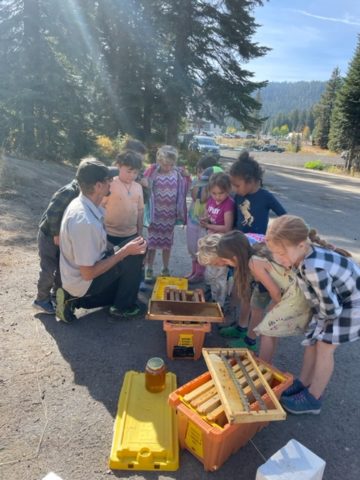What was your driving question?
Grades Involved
How did this project connect to your local or regional community?
What PBE principles were highlighted in this project?
Standards: List standards or competencies that the project addresses
Life Science K:
LS1-K-!Use observations to describe patterns of what plants and animals (including humans) need to survive.
LS1-K-2 Use classification supported by evidence to differentiate between living and non-living items.
LS1-C All animals need food in order to live and grow. They obtain their food from plants or from other animals. Plants need water and light to live and grow.
Life Science 1:
LS1-1-3 Develop models to describe that organisms have unique and diverse life cycles but all have in common birth, growth, reproduction, and death.
LS1-D Animals have body parts that capture and convey different kinds of information needed for growth and survival. Animals respond to these inputs with behaviors that help them survive. Plants also respond to some external inputs.
Math K:
Geometry: Identify and describe shapes (squares, circles, triangles, rectangles, hexagons, cubes, cones, cylinders, and spheres).
Geometry: Analyze, compare, create, and compose shapes.
Math 1:
Geometry: Reason with shapes and their attributes.
Project Description
The students wanted to learn more about the pesky bees around our school and find out what role they played in nature. They researched the differences between bees and wasps, how to identify different species, and created examples with paint and clay. They met with a beekeeper and learned all about how bees make honey and use it for bee products. They learned about bees’ role in an ecosystem and created a play explaining the importance of bees and the dangers of Colony Collapse Disorder.
How did this positively impact the community? How was it shared?
Reflection: What was the biggest challenge? What was the most rewarding aspect of this project?
Any advice for a teacher or student that is implementing a PBE project for the first time?
The most challenging aspect of this project was the amount of time it’s taking and encouraging the students to see it through to the final product. The most rewarding aspect of this project has been seeing how engaged the students have remained throughout the entire process and how much they’ve learned across the disciplines.


